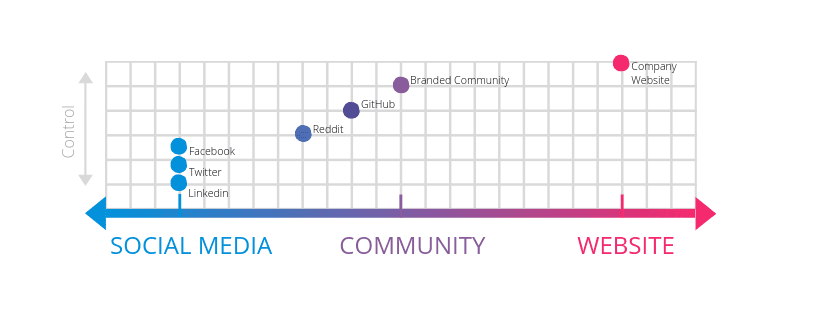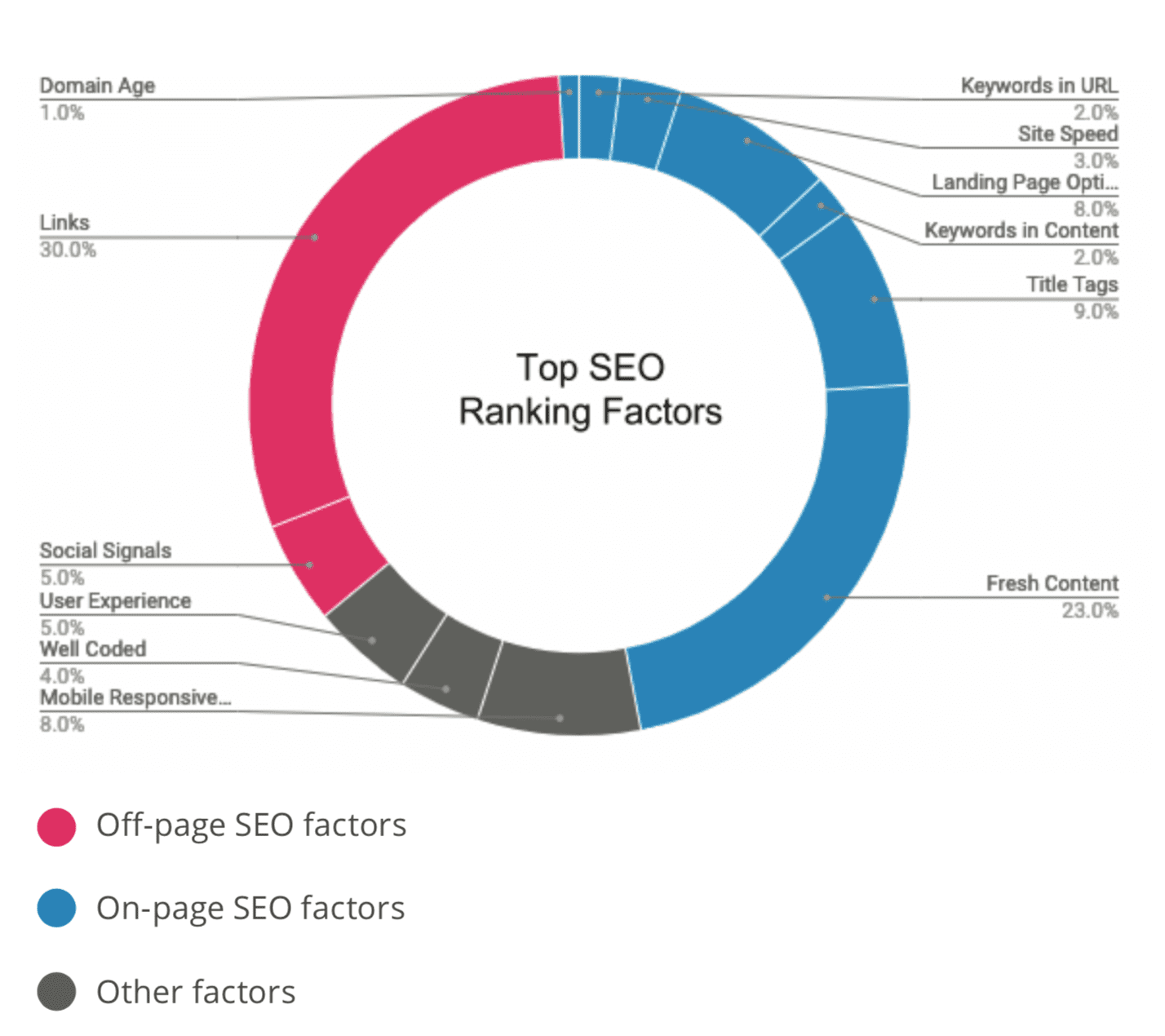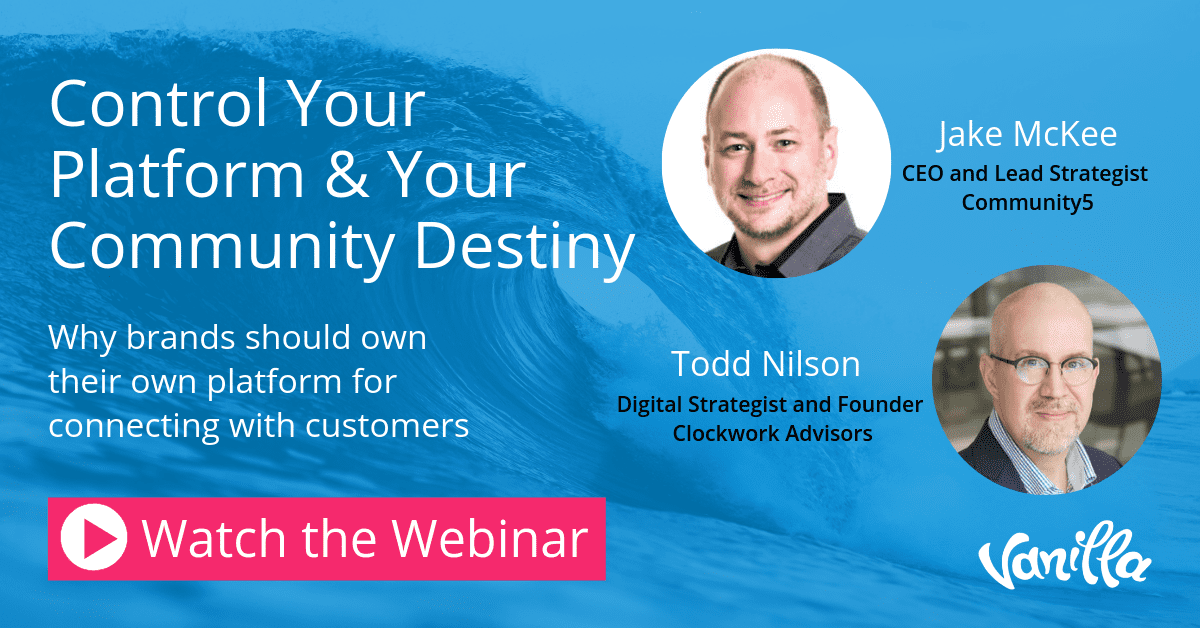
How an Online Community Forum Helps Your SEO
We’ll get into more about the difference between a branded community and a community built on a social media platform later, but for now, let’s talk a little bit about SEO.
We’ll get into more about the difference between a branded community and a community built on a social media platform later, but for now, let’s talk a little bit about SEO.
Why is SEO so Important?
If you aren’t really sure what exactly SEO is, or why it’s so important, you definitely aren’t alone. SEO is a buzzword these days, and although many organizations know that it’s important, they don’t really know the hows or whys behind it.
The fact is, SEO is much more than just making sure your content is filled with keywords that your users will search for. SEO is about optimizing a number of different things in order to increase your chances of earning a top spot on the search engine results page (SERP).
As you can see from the image above, there are a number of factors that contribute to SEO. These factors include a combination of on-page and off-page SEO factors, in addition to some others that don’t fall into either of these categories.
On-page SEO refers to the practice of optimizing both the content on a web page and the HTML code behind the web page. This is in contrast to off-page SEO, which refers to the practice of optimizing activities associated with advertising a web page or web site and generating more traffic, mostly done through social media and link building. Both of these techniques contribute to the overall SEO of a webpage and play a role in the rank that a web page appears in the SERP.
Branded Community vs. Social Media
Now that you have an understanding of what SEO is, we need to discuss the fact that not just any community can help your SEO.
Some organizations may choose to host their community on a social media platform, such as Facebook, Linkedin, Twitter, etc. While there are some perks associated with this option, there are a number of things that limit what you can and can’t do, including optimizing your SEO. For this reason, a branded community is considered a better option, since it allows for far more control.

In case you aren’t familiar with the term, a branded community refers to a community that is hosted as an extension of the website. For example, Acer has a branded community. Their company website is https://www.acer.com, while their community website is https://community.acer.com. As you can see, their community is a sub-domain of the Acer URL.
A branded community, as mentioned, allows for more control over a number of functions and community details, including:
- Community culture and direction
- Community UI and UX design
- Privacy (data protection)
- Authentic conversations due to anonymity
How Online Communities Help SEO
A good branded community software will give you control over a number of vital SEO factors, all of which play a role in improving your rank on the SERP. Further, achieving a high rank on the SERP through SEO means that your website/ webpages are popular and in demand. To be popular, you’ve got to provide your customers with what they actually want.
Community is one of the best ways to provide your customers with self service support, which as I’m sure you know, is what customers want.
Besides the simple fact that giving your customers what they want will make your website more popular, boosting your SEO, communities themselves have an impact on a number of SEO ranking factors — well, if your community has the right software!
These factors are:
- Keywords in Content
- Keywords in URL
- TitleTags
- Fresh Content
- User Experience
Let’s take a closer look at each.
Keywords in Content
Since posts in online communities are written in the words of your customers, they have a huge impact on SEO. This is because when your customers take to Google for a search about your product or services, it’s likely that the same words they use will be found in your community, which will help pull it as a top result. Your organization may be using different types of words that the average customer won’t use, so having an online community where customer lingo can be documented and searched is greatly beneficial.
Keywords in the URL
If you have a good community software (*cough* like Vanilla) your community should be able to automatically create the URL of a discussion that aligns with SEO best practices. This means that URLs should be created using the title of the discussion, rather than just populating a random URL slug that looks like this:
http://www.example.com/articles_read38294?ID_49205=2456
Yikes! We’ve certainly all seen this before, and it’s absolutely terrible for your SEO. Having a good community software will help your SEO by avoiding issues like this because the discussion titles (using customer jargon and keywords) will be used in the URL.
Title Tags
Again, having a good community software is key to this factor as well — for your SEO to be effective, the title tag needs to appear on the webpage and in the HTML code behind the webpage. This will help boost your SEO since your title will likely have keywords, and plays the largest role in actually getting people to click on your link.
To this end, community is extremely important because you’re likely to have a ton of discussions that contain a variety of keywords that customers will search for. Since a community is rich with information, and if the title tags are formatted correctly, your SEO will improve.
Fresh Content
One of the most impactful ways that community helps SEO is by constantly generating new and fresh content. Having fresh content, as you can see in the chart for the top SEO ranking factors, is one of the largest contributors to SEO.
Of course, this is dependent on having a thriving and vibrant community — if your community is a ghost town, sufficient to say, there won’t be any new or fresh content.
Further, while your community is great for creating new and fresh content daily, that doesn’t mean that as a Community Manager, you’re off the hook for content. In fact, if your community is creating awesome content, you want to ensure that the content is maintained and updated as time goes by to keep it relevant.
User Experience
Having a community (a community done right) helps to improve your user experience and subsequently impacts engagement levels. A higher engagement level not only means lots of new and fresh content, but it also means that the URL will be more popular. Both of these factors, as we know, contribute to rank in the SERP.
Concluding Thought
If you want to learn more about how to optimize your SEO, or how a branded community can benefit your brand SEO, take a look at our free guide on SEO: The Big Book of SEO.




